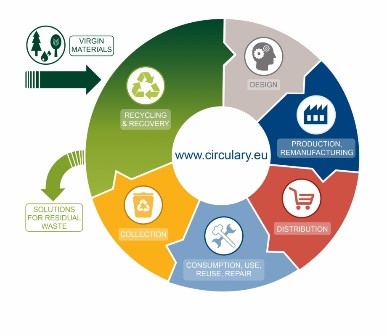  |
To make the economy sustainable, i.e. to concile its development with the need to safeguard natural resources and eco-systems, it is necessary to develop technologies that push the transition to the circular economy, with measures to reduce waste, reduce the consumption of resources, encourage their recovery and reuse. The research activity on these issues is transversal to different sectors and closely linked to the development of a regenerative chemistry for the requalification and recovery of secondary raw materials from end-of-life products, the efficient use of chemicals according to the paradigms of the “performance economy”, the recovery of critical resources, the intelligent recycling of materials, etc. The key point of these approaches is to consider the waste not as a waste but as a source of recyclable materials within communities and districts, able to develop suitable industrial synergies that lead to the creation of symbiotic production chains. The activities, therefore, concern the development of ad hoc sustainable technologies, as well as the development of management tools that allow the networking of production surpluses and wastes, in a frameworke of territorial synergy.
These activities cannot disregard the development of integrated solutions with the production, use and sustainable storage of energy, with reference both to the thermal waste derived from transformation processes, and to materials with potential energy content that can be used for the production of bio- or synthetic fuels, with a potentially significant impact on transport sector. On the other hand it is also important, for the complete exploitation of resources, the study of supply chains capable of guaranteeing the preventive extraction from waste materials of all products with high added value through the integration of chemical, thermochemical and biotechnological processes and technologies, also taking into account the local differentiation of the source and before energy recovery.
